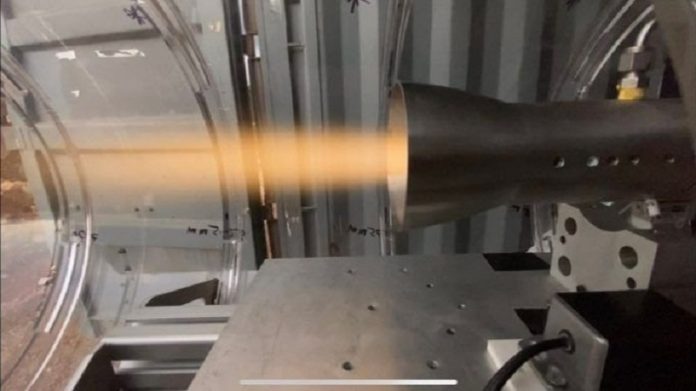
The Australian Space Agency has awarded Valiant Space a $750,000 grant as part of the Australian Government’s Moon to Mars Initiative.
The Supply Chain project, which will cost a total of $1 million, will see Valiant Space upscale and distribute its non-toxic satellite propulsion technologies to domestic and worldwide customers by overcoming barriers to market entry.
The project will focus on three key areas including flight testing, scalability, and delivery. Valiant CEO Andrew Uscinski said the company will conduct two demonstration spaceflights of its VS-1 non-toxic thruster hardware over the duration of the one-year project.
“This project is an exciting next step for the company.” Valiant CEO Andrew Uscinski said. “By scaling up and flight testing our VS-1 thruster, we are positioning ourselves to enter into a growing market looking for faster, safer, and cheaper in-space propulsion.”
The Australian Space Agency previously awarded Valiant Space a Demonstrator Feasibility Grant in mid-2021 to help the firm develop their non-toxic propulsion technology.
Michael Douw, Valiant Space’s CTO, said the Supply Chain project will continue its development work from the previous year, with an emphasis on getting the VS-1 ready for market introduction.
“This is a success story for Valiant, and for the Australian space industry,” Mr Douw said.
“The feasibility work we have conducted has matured into a high tech, high value, and export-ready supply chain opportunity.”
Valiant will complete its initial orbital flight tests in Q4 2022 and Q2 2023, launching onboard two SpaceX missions.
The company aims to gain flight heritage – a critical milestone for all aerospace companies – and these flights will aim to show that the VS-1 can function as expected in space.
In addition, Valiant will bring crucial manufacturing skills in-house, expand and upskill its workforce, and ramp up production of the VS-1 thruster ahead of market launch in 2023.
Manoeuvres such as orbit insertion, orbital maintenance, collision avoidance, and de-orbiting require in-space chemical thrusters. For this type of propulsion, the space industry currently relies on carcinogenic propellants.
Valiant aims to substantially improve the safety and minimize the logistical complications associated with launching satellites into orbit by employing non-toxic and readily available propellants.
“This supply chain project will allow us to bring locally designed and manufactured space hardware to the market,” Mr Uscinski said.
“This is an essential enabling technology for space exploration, so the possibilities for future Australian missions are very exciting.”




















